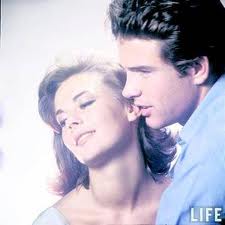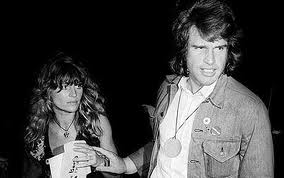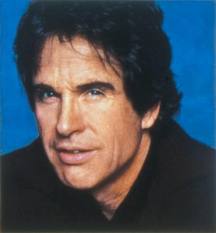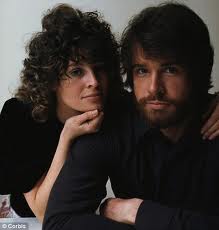Warren Beatty born March 30, 1937) is an American actor, producer, screenwriter and director. He has received a total of ten Academy Award nominations, winning one for Best Director in 1982, He has also won four Golden Globe Awards including the Cecil B. DeMille Award. He is married to actress Annette Bening.
Early life and education
Beatty was born Henry Warren Beaty in Richmond, Virginia's Bellevue neighborhood. His mother, Kathlyn Corinne (née MacLean), was a Nova Scotia–born drama teacher, and his father, Ira Owens Beaty, was a professor of psychology, a public school administrator, and a real estate agent. Beatty's grandparents were also teachers. The family was Baptist. His father moved the family from Richmond to Norfolk, Virginia, and then to Arlington, Virginia, where he became a middle school principal. The family also lived in Waverly, Virginia, in the 1930s. Beatty's sister, three years his senior, is the multi-award winning actress and writer Shirley MacLaine.Beatty was a star football player at Washington-Lee High School, in Arlington, Virginia. Encouraged to act by the success of his sister, who had recently established herself as a Hollywood star, he decided to work as a stagehand at the National Theater in Washington, D.C., during the summer prior to his senior year. This enabled him to establish contact with a few famous actors. Upon graduation from high school, he turned down 10 football scholarships to enroll in drama school.
He studied acting and directing at the Northwestern University school of drama. While at Northwestern, he appeared in the annual Dolphin show. He is a member of the Sigma Chi Fraternity. He dropped out after his freshman year to enroll in the Stella Adler Conservatory of Acting in New York City. By the age of twenty-two, Beatty had appeared in about forty Off Broadway productions. He garnered a best actor Tony Award nomination in 1960 for his performance in William Inge's drama A Loss of Roses. It was to be his only appearance on the Broadway stage.
Military service
Under his original name of Henry W. Beaty, Warren Beatty enlisted in the California Air National Guard on February 11, 1960.On January 1, 1961, Beatty was discharged from the Air National Guard due to physical disability. He was also simultaneously discharged from the United States Air Force Reserve. Since he served on inactive duty only, Beatty was not awarded any military decorations.
Career
The handprints of Warren Beatty in front of The Great Movie Ride at Walt Disney World's Disney's Hollywood Studios theme park.
Warner Bros. had such little faith in Bonnie and Clyde, they decided to give Beatty 40% of the gross box office receipts instead of a flat fee, expecting it to be a major flop. The film made $70 million within six years.
Because of his work on Bonnie and Clyde (1967), Beatty is generally regarded as the precursor of the New Hollywood generation, which included such filmmakers as Francis Ford Coppola, Steven Spielberg, George Lucas and Martin Scorsese.
Afraid of being typecast as a milquetoast leading man, and still smarting over the What's New, Pussycat? debacle, where he was outmaneuvered by Woody Allen and eventually forced to leave the production, Beatty produced Bonnie and Clyde as a means of controlling the projects he was involved with. He hired the untested writers Robert Benton and David Newman, as well as director Arthur Penn, and controlled every facet of production, including cast, script and final cut of the film, as he would throughout the rest of his career, be it as producer/director or only as producer. It should be noted that in Bugsy it was Beatty, the producer, who had final cut on the film, not Barry Levinson, the director.
Bonnie and Clyde became a blockbuster and cultural touchstone for the youth culture of the era. The film, along with Easy Rider, marked the beginning of the so-called “New Hollywood” era, where studios gave unprecedented freedom to filmmakers to pursue their own idiosyncratic vision.
1970s and 1980s
Subsequent Beatty films include McCabe & Mrs. Miller (1971), The Parallax View (1974), Shampoo (1975), and Heaven Can Wait (1978). These last two films made forty-nine and eighty-one million dollars respectively, and gave Beatty box-office power. He used this power to make Reds (1981), an historical epic about the Communist journalist John Reed who observed the Russian October Revolution – a project Beatty had started doing research and some filming for as far back as 1970.Beatty is one of the few people to receive Oscar nominations in the Best Picture, Actor, Director, and Screenplay categories for a single film. This feat is all the more impressive since Beatty achieved it twice: in 1978 for Heaven Can Wait, where he won none of the awards; and again for Reds in 1981, where he won the directing award. His writing credits have often been in dispute, however. In Peter Biskind's biography of Beatty, Star, several distinguished writers with whom Beatty has collaborated (e.g., Bo Goldman, Robert Towne, James Toback, Robert Benton, et al.) have claimed that Beatty often requested or demanded writing credit where little or none was due. He received Best Picture and Best Actor nominations for both Bonnie and Clyde (1967) and Bugsy (1991), and received Best Original Screenplay nominations for Shampoo (1975) and Bulworth (1998).
After a six-year hiatus following Reds, Beatty starred alongside Dustin Hoffman in 1987's big-budget film Ishtar. It was critically panned and is regarded as one of the biggest box office bombs in film history. In 1989, he recorded the duet, "Now I'm Following You" with Madonna for her 1990 album, I'm Breathless.
1990s and 2000s
In 1990, he bounced back when he produced, directed and starred (alongside his Ishtar co-star Hoffman) in the title role as the comic strip character Dick Tracy in the film of the same name. The film was one of the highest grossers of the year and also the highest-grossing film in Beatty's career to date.In 1991, he starred as the real-life gangster Bugsy Siegel in the biopic Bugsy which was critically acclaimed and made almost fifty million dollars at the U.S. box-office. His next film, Love Affair (1994), failed to do well. In 1998 he wrote, produced, directed and starred in the political satire Bulworth which was critically appreciated and earned him another nomination for Best Original Screenplay. In 2001, he appeared in his last film to date, Town and Country, which became the second-largest money loser of any movie ever made (after The Adventures of Pluto Nash) based on contemporary dollars lost: it was made on a budget of approximately USD $90 million, but earned only $6.7 million domestically. Since then, Beatty has not acted in any films but has expressed interest in returning to cinema.
In 2006, Beatty was named Honorary Chairman of the Stella Adler Studio of Acting, succeeding Marlon Brando. In 2007, the Hollywood Foreign Press Association awarded Beatty the Cecil B. DeMille award, presented at the Golden Globe ceremony by Tom Hanks. Beatty was honored with the AFI Life Achievement Award in 2008.
Beatty is on the Board of Trustees at The Scripps Research Institute.
Tribune lawsuit
In May 2005, Beatty sued Tribune Co. for $30 million in damages, claiming he still maintains the rights to Dick Tracy. Beatty received the rights in 1985 and claimed that Tribune moved to reclaim them in violation of various notification procedures. There was talk of a sequel, and Beatty did express interest in reprising the part, but the sequel was sidelined by unexpected legal disputes. In March 2009, Tribune filed suit against Beatty, saying that Beatty had "made no productive use" of the rights for over a decade, causing them to revert back to Tribune.Personal life
Beatty has had romantic relationships with singers Madonna, Cher, Carly Simon, Michelle Phillips,actresses Natalie Wood, her sister Lana Wood, Julie Christie, Leslie Caron, Goldie Hawn, Joan Collins, Diane Keaton, Mary Tyler Moore,[ Isabelle Adjani, and supermodels Elle MacPherson and Stephanie Seymour.After years of dating many famous women, he married Annette Bening on March 12, 1992, with whom he co-starred in the film Bugsy. They have four children: Stephen (born Kathlyn, January 8, 1992), Benjamin (born August 23, 1994), Isabel (born January 11, 1997) and Ella (born April 8, 2000).

















































No comments:
Post a Comment